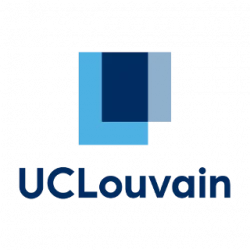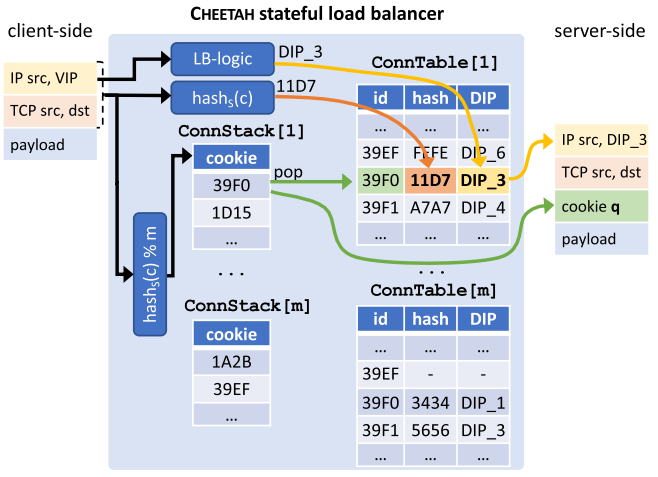In this journal version, we extended our conference paper with additional, peer-reviewed material:
- We implemented our system on QUIC using P4 and Picoquic. This demonstrates that our approach does not depend solely on TCP timestamps. The code in ‘bmv2’ and ‘p4-tofino’ has been made publicly available. All of our code is available at https://github.com/cheetahlb/.
- We added an experiment using the Tofino implementation and the QUIC implementation of Cheetah for an HTTP webserver.
- We added an experiment to verify whether today’s OSes support TCP timestamp, have them enabled by default, and correctly echo the TCP timestamp set by a server.
- We added an experiment to verify the granularity of the TCP timestamp units used by some of the largest Alexa top 100 websites.
- We added a proof sketch on the size of the cookies given a number of servers.
- We added an implementation in bmv2 of the “TCP timestamp”-based system. We have also rewritten and published the P4- tofino code of the system. The implementation of the stateful LB is non-trivial as it requires the insertions/lookups/deletions operations to be applied in constant time (and more restrictions apply). We describe our implementation of a stack-based data structure for the Tofino in Section 4.3.
- We added a micro-benchmark of the performance of the Cheetah LB, e.g., compared SYN insertions with cuckoo, normal packets,
- We broke down the benefits of SSE parsing of TCP options instructions.
- We evaluated the packet processing latency overheads of realizing Cheetah on a Tofino for both the TCP timestamp and QUIC implementation.
- We clarified the design challenges in the introduction.
Check out the paper in open access !

